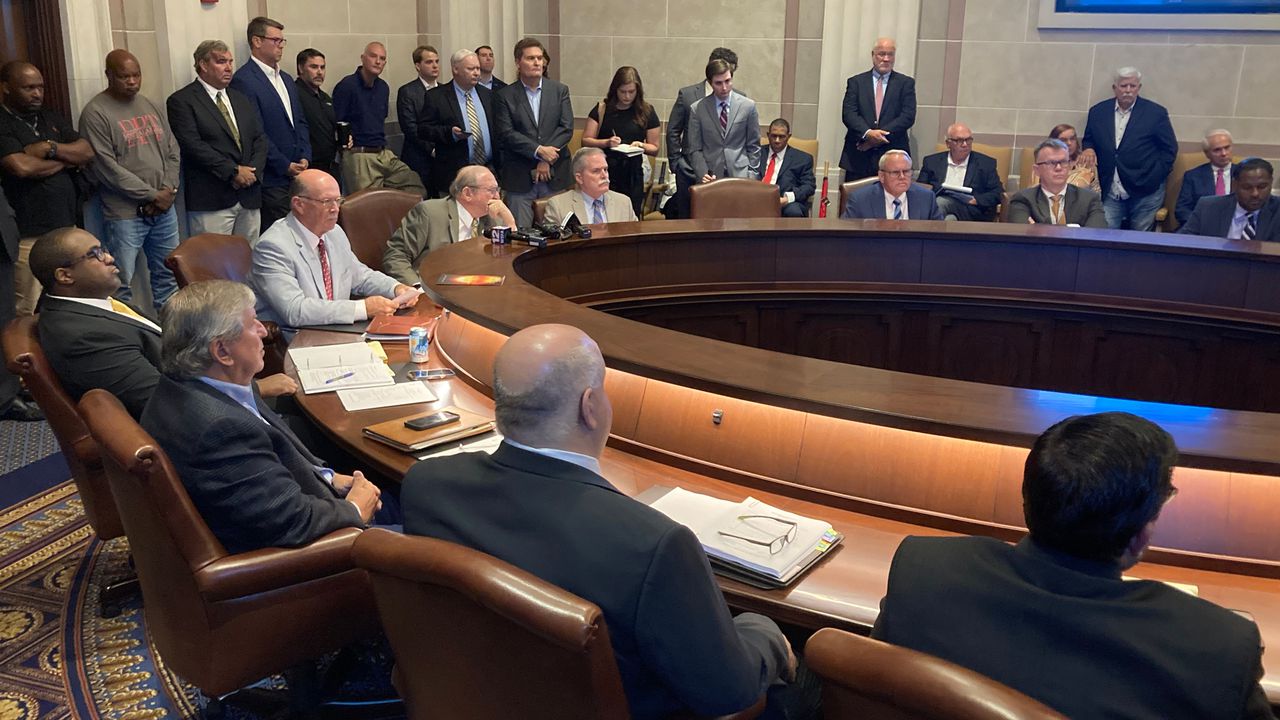Judge to rule on key point in medical cannabis license disputes
Montgomery County Circuit Judge James Anderson said he will rule by Thursday on a key point in the wide-ranging litigation over state licenses for businesses that want to take part in Alabama’s new medical marijuana industry.
Verano Alabama LLC, which applied for an integrated license to cultivate, process, and dispense medical cannabis, claims in a lawsuit that the Alabama Medical Cannabis Commission had no authority to void licenses it previously awarded. The AMCC maintains it has that authority.
At a hearing on Tuesday, Anderson asked lawyers for the company and for the AMCC to file proposed orders by noon Wednesday. Anderson said he would rule before the next meeting of the AMCC, which is at 1 p.m. Thursday.
That ruling will not be the last word in the licensing disputes. Other issues are pending in the litigation filed by license applicants against the AMCC. The lawsuits and mistakes by the AMCC have delayed the licensing and the start of the work needed to get medication to patients.
The Alabama Legislature approved medical marijuana in 2021 and created the AMCC to oversee the seed-to-sale regulation of a fully intrastate industry. Before the delays, officials had hoped products could be available late this year or early in 2024.
Thursday’s AMCC meeting could mark another key development. The AMCC released a draft agenda for the meeting indicating it will consider new rules and revised rules for how it evaluates license applications.
Companies that have not been picked for licenses support changes. Companies that were picked do not want any changes applied in a way to reverse the AMCC’s earlier decisions.
Verano Alabama maintains that it should be issued the license the AMCC initially awarded the company four months ago.
On June 12, the AMCC awarded licenses to 21 companies. Verano Alabama was one of five picked for an integrated license, the maximum allowed for that category.
Evaluators who assigned scores to rank the applicants gave Verano Alabama the highest score among 38 integrated license applicants. Verano Alabama said it received an invoice from the AMCC to pay its $50,000 license fee on June 12 and paid it the next day.
On June 16, the AMCC put a hold on the license awards after finding inconsistencies in the tabulation of scores used to rank the applicants.
In August, the AMCC announced that the scores had been corrected and voided the June awards. After the corrections, Verano Alabama still had the top score among the integrated license applicants. In fact, its score was higher after the corrections. But Verano Alabama was not one of the integrated licensees picked in August.
Verano Alabama claims the AMCC had no legal authority to void the June 12 license awards. And the company claims that the fact that it was passed over in August despite still having the highest score undermines the AMCC’s claim that it voided the June license awards because of the scoring errors.
“Verano Alabama’s position has been—and continues to be — the Commission did not have authority to use this guise of scoring inconsistencies to change its prior final agency action, throw out the scoring altogether, and re-award licenses to applicants handpicked by the Commission based on personal preference,” the company’s lawsuit says.
The AMCC claims the law does give it the authority to withdraw license awards. The AMCC has asked Anderson to dismiss the lawsuit.
“The enabling Act and regulations inherently authorize the Commission to rescind license awards it discovers it may have made based partly on erroneous score tabulations,” the AMCC said it in its motion to dismiss. “The Commission has a vested interest in and a regulatory duty to issue licenses based on merit, necessitating accurate data.”
That August round of license awards is also on hold. Companies that were not picked have claimed the AMCC violated the state’s open meetings act, among other claims.
Anderson said he plans to resume a hearing on the open meetings act claims next Wednesday.
